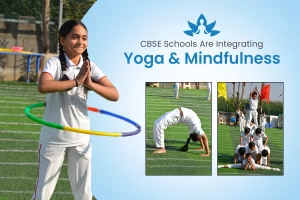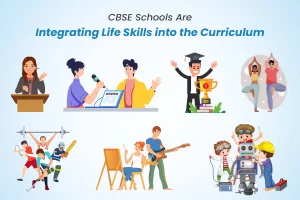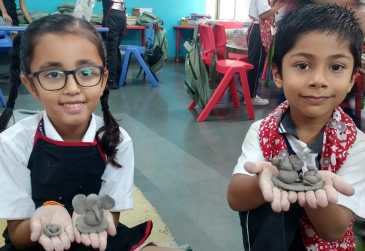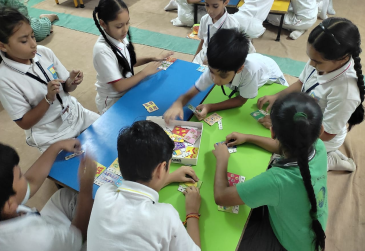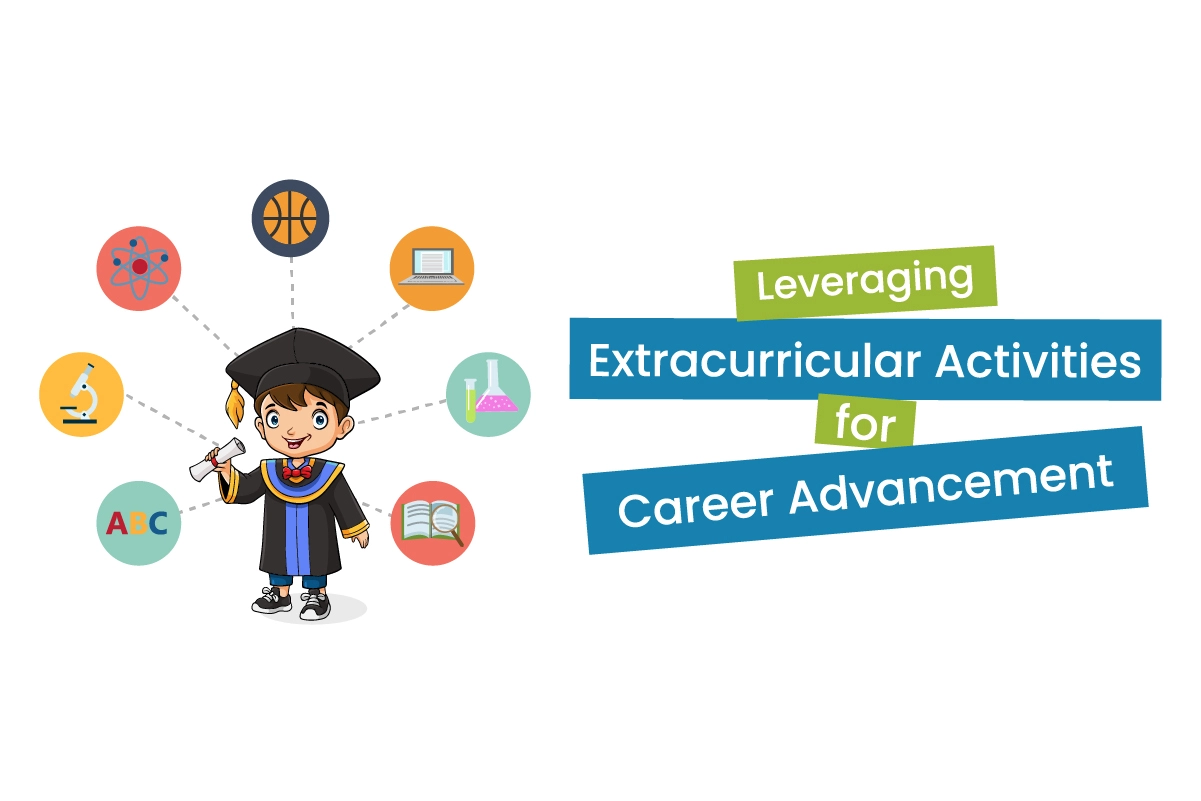In today’s market, qualifications attained at an academic institution may not be enough to land a person in the sweet spot of his or her career. The case is the same when it comes to employers or universities; they are in search of candidates who have not only a high score but also a wholesome personality with skills and experience. This is where extracurricular activities come in handy in clearing this fog that hovers over the heads of the learners. In this blog, we shall discuss how students can use the aforementioned activities to polish themselves, with special reference to CBSE schools.
The Importance of Extracurricular Activities
It is seen that extracurricular activities for students are not just a mere form of pastime in their spare time. They are part of the curriculum that enhances the students’ development and career preparation. These activities offer students the chance to:
- Get new abilities.
- Explore hobbies and passions
- Improve your sense of confidence.
- Acquire the ability to manage your time
- Improve your capacity to interact with others
- Exhibit competencies in the area of leadership
Education is more than a book, more than tests and grades, or even more than a teacher or professor. It is the comprehensive development of the person, and therefore, the activities are an important component of it.
Types of Extracurricular Activities
CBSE schools typically offer a wide range of extracurricular activities for students. These may include:
- Sports and Athletics
- Music and Performing Arts
- Debate and Public Speaking
- Community Service and Volunteering
- Student Government
- Academic Clubs (Science, Math, Literature, etc.)
- Cultural Clubs
- Environmental Clubs
- Technology and Coding Clubs
- Art and Creativity Clubs
Each of these activities offers unique benefits and opportunities for skill development.
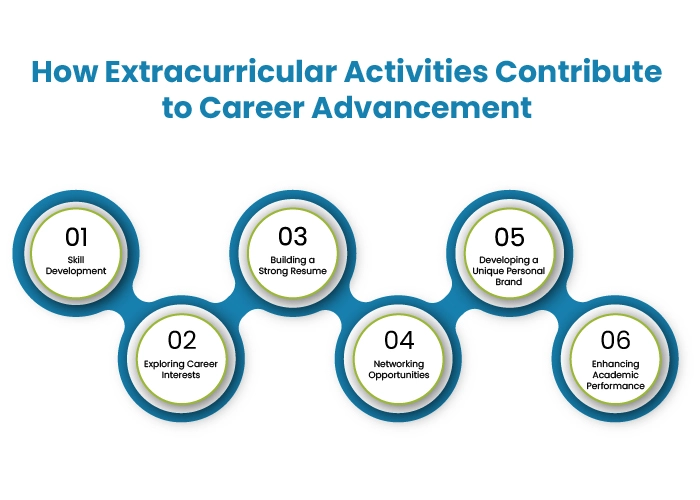
1. Skill Development:
The chance to build the essential life skills of the students that are very important in the contemporary working environment is given to the students through participation in extracurricular activities. These include:
- Leadership skills
- Teamwork and collaboration
- Communication skills
- Problem-solving abilities
- Time management
- Creativity and innovation
These skills are often difficult to develop solely through academic studies but are crucial for career success.
2. Exploring Career Interests:
Students can learn about a lot of different topics and find their interests by exploring different fields and discovering their passions. For instance, a student who joins a robotics club might find that they love engineering, while a student who works in the school newspaper might discover that they love writing.
3. Building a Strong Resume:
People who have done meaningful tasks outside of school are seen as more desirable by colleges and employers. These activities show initiative, dedication, and the capacity to handle multiple duties, all of which are highly sought-after qualities in job applicants.
4. Networking Opportunities:
Students often interact with peers, mentors, and sometimes professionals in related areas during activities outside of school. These links can help you a lot when you’re looking for a job, an internship, or a group project.
5. Developing a Unique Personal Brand:
Extracurricular activities can help a student stand out in a world where many students get good grades. They help students make a personal brand that makes them stand out from their peers.
6. Enhancing Academic Performance:
While some may assume that participation in activities outside of class may have an adverse impact on academic performance, different studies demonstrate that students participating in such activities may be even more effective in their studies. This is probably because skills like time management and discipline, which the children acquire from such activities, help them do better at school.
Leveraging Specific Activities for Career Advancement
1. Sports and Athletics:
Sports teach people how to work together, be leaders, be disciplined, and keep going even when things get tough. In any work setting, these traits are highly valued. Athletes often learn how to handle their time well and do well when they are under a lot of stress.
2. Debate and Public Speaking:
These activities enhance communication skills, critical thinking, and the ability to construct and present arguments effectively. These are crucial skills in fields like law, politics, business, and academia.
3. Student Government:
Being in student government helps you become a better leader, learn how organizations work, and learn how to work with people from different backgrounds. People who are interested in business, politics, or management will benefit the most from these situations.
4. Community Service:
Donating your time shows that you care about others and are socially responsible. People who want to work for a nonprofit, provide social services, or take on corporate social responsibility jobs may find it especially helpful.
5. Academic Clubs:
Being part of clubs that are based on a particular subject will allow you to study further and prove to the teacher that you are passionate about that area. This can be especially useful when, for instance, searching for employment or reading details of a particular academic program in your specialty.
6. Technology and Coding Clubs:
As our world becomes more digital, skills learned in tech clubs are highly respected in many fields. These things can help you get jobs in IT, software development, data science, and other fields.
7. Arts and Creativity Clubs:
These activities nurture creativity and innovative thinking, which are valuable in fields ranging from design and advertising to product development and entrepreneurship.
Balancing Academics and Extracurricular Activities

Even though it’s clear that extracurricular activities are good for you, it’s important to keep your academic tasks in check. Here are some tips for kids in CBSE schools on how to handle both well:
1. Prioritize activities: Choose activities that align with your interests and career goals rather than trying to do everything.
2. Create a schedule: Use a planner to allocate time for studies, activities, and rest.
3. Learn to say no: It’s okay to decline additional responsibilities if your plate is already full.
4. Communicate with teachers and activity leaders: Keep them informed about your commitments to manage expectations.
5. Use time efficiently: Look for ways to optimize your study time, such as reviewing notes during short breaks.
6. Take care of your health: Ensure you get enough sleep, exercise, and maintain a balanced diet to sustain your energy levels.
Showcasing Extracurricular Activities
To leverage extracurricular activities for career advancement, it’s important to effectively showcase these experiences:
1. On Resumes and Applications:
- Highlight leadership roles and specific achievements
- Quantify your impact where possible (e.g., “Raised $5000 for local charity”)
- Emphasize skills developed through these activities
2. In Interviews:
- Use specific examples from your extracurricular experiences to demonstrate key skills
- Explain how these activities have shaped your career goals and personal growth
3. In Personal Statements:
- Reflect on how extracurricular activities have influenced your perspective and aspirations
- Discuss challenges you’ve overcome through these activities
4. Through Digital Platforms
- Create a LinkedIn profile highlighting your extracurricular achievements
- Consider starting a blog or portfolio showcasing projects from your activities
The Role of Schools and Parents:
CBSE schools play a crucial role in providing and promoting extracurricular opportunities. They should:
- Offer a diverse range of activities catering to various interests
- Provide resources and support for student-led initiatives
- Recognize and celebrate student achievements in extracurricular areas
- Educate students and parents about the importance of these activities
Parents can support their children by:
- Encouraging participation in activities aligned with the child’s interests
- Helping to maintain a balance between academics and extracurriculars
- Recognizing the value of skills developed through these activities
- Supporting their child’s commitments to chosen activities
To summarize, extracurricular activities are more than just a supplement to a student’s academic path; they are essential components that contribute considerably to personal development and career advancement. Participating in these activities allows CBSE students to develop important life skills, explore their interests, and lay a solid foundation for their future employment.
The challenge is to choose activities properly, maintain a balance with academics, and successfully communicate these experiences. When used effectively, extracurricular activities may be an effective tool for achieving academic achievement and laying the groundwork for a successful professional career.
As we continue to acknowledge the value of education in its broadest sense, it is obvious that extracurricular activities for students will play an increasingly important role in shaping well-rounded, talented, and confident individuals prepared to face the demands of the modern workforce. To nurture this holistic development, consider exploring the enriching opportunities offered at Anand Niketan School in Ahmedabad. Connect with them to learn more about how they can help your child maximize their potential.

